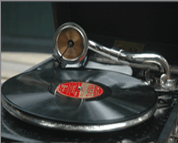



|
U
Hypebot kindly alerts us to an unintentionally hilarious GQ column by U2 manager Paul McGuinness, supposedly on "how to save the music industry." Of course, that's not what it's actually about -- because the music industry doesn't need saving. Last we checked, it's doing great. As, by the way, are McGuinness and U2. McGuinness has been making similarly wrong arguments for quite some time, and we try to debunk them each time. It seems that we bloggers have finally gotten under McGuinness' skin, as he lashes out at internet bloggers in this piece, specifically for the criticism they gave of his Midem speech in 2008 (criticism such as mine). Then there is the backlash from the bloggers -- those anonymous gremlins who wait to send off their next salvo of bilious four-letter abuse whenever a well-known artist sticks their head above the parapet. Hi Paul. My name is Mike Masnick. Nice to meet you. I may be a blogger, but I'm not anonymous. Not only that, I've also attended the past few Midem's, as well -- and have even presented a few times off the same stage as you -- and, oddly, it didn't end in anonymous gremlins and backlash. Perhaps you're doing something wrong. When Lily Allen recently posted some thoughtful comments about how illegal file-sharing is hurting new developing acts, she was ravaged by the online mob and withdrew from the debate. Well, since that story actually involves me, in part, I have to suggest that your version of it is a creative myth that has little to do with reality. While there were some childish attacks on Ms. Allen, that's true of pretty much any online debate. Check the comments here. I'm regularly called all sorts of horrible names. But that's not why Allen withdrew from the debate -- and pretending that the only reason was that she was "ravaged by the online mob" for her "thoughtful comments" is really a work of fiction. First of all, not all that much attention was paid to Allen's not-very-well-thought-out screed until after it was shown that she didn't even live up to the virtues she preached. First, she blatantly copied an entire blog post of mine, without credit or a link. Now, I'm fine with that, but doing so on a blog about how copying is "bad" seemed amusing. After that, it was discovered that Allen was distributing a ton of copyrighted music in an unauthorized manner off her own website in the form of "mix tapes," that she had used to popularize her own works. That resulted in a lot more unwanted attention. Rather than attack Ms. Allen, we used it as a teachable moment, to suggest where she may have been overreacting. Right after that is when she "withdrew from the debate," and shut down her blog. During that time, I was monitoring the comments on her blog as well, and the vast majority of them were quite polite, simply asking her to defend her actions. Yes, there were a few nasty retorts, but they were very much a minority, were hardly representative, and were no different than you'd find in any online forum. So, to spin all of that into claiming she withdrew because of being "ravaged by the online mob" is a work of fiction, I'm afraid. Perhaps you should try copyrighting it. Nevertheless, Bono has stepped into the argument. Quite unprompted by me, he wrote an op-ed piece in the New York Times in January and he pulled no punches. "A decade's worth of music file sharing and swiping has made clear the people it hurts are the creators... and the people this reverse Robin-Hooding benefits are rich service providers, whose swollen profits perfectly mirror the lost receipts of the music business." Bono is a guy who, when he decides to support a cause, does so with enormous passion. But even he was amazed by the backlash when he was mauled by the online crowd. Not quite fiction this time, but McGuinness conveniently leaves out some of the details -- such as the fact that Bono suggested that China's internet censorship methods are a good model for the record labels to fight file sharing online. That's a statement that deserves backlash, because it's encouraging censorship (while not realizing how ineffective China's censorship really is). The backlash wasn't just because Bono spoke out against file sharing -- but because he said some things that many people pointed out were completely out of touch with reality. You have to ask how these inchoate, abusive voices are helping shape the debate about the future of music. I rarely do news interviews but when I spoke to the influential technology news site CNET last autumn I was set on by a horde of bloggers. One of them was called "Anonymous Coward." I'm not worried about criticism from Anonymous Coward. But I am worried about how many politicians may be influenced by his rantings. The level of abuse and sheer nastiness of it was extraordinary. Without Anonymous Coward and his blogosphere friends, I think many artists and musicians would be more upfront about the industry's current predicament. They might tell the world what they really feel about people who steal their music. But it's understandable why they don't - and that is partly why I don't mind filling the vacuum. Once again, it appears that McGuinness is playing fast and loose with the facts, and is a bit confused. First of all, his interview with CNET was not last autumn, but in the spring of 2009. I know. The days blend together for me too, so this is certainly forgivable. Second, however, is the claim that this "horde of bloggers," including one named "Anonymous Coward" "set on" McGuinness. I've gone through the comments on the CNET piece, and don't see any by anyone named Anonymous Coward. Separately, it's worth noting that while many people critique the factual mistakes in McGuinness' claims, I don't see many that really are so outrageous as to be referred to as being "set on by a horde." Now, I also responded to that interview, but once again, I am not named Anonymous Coward -- but Mike Masnick (again, nice to meet you). Now, the commenters on Techdirt who choose not to include their names are automatically labeled Anonymous Coward, a convention that we copied (I guess McGuinness would say "stole") from Slashdot when we first launched with Slashcode over a decade ago. So, some of our commenters (not the same as bloggers) did show up under that moniker. Reading through the comments from AC's on our post also leaves me scratching my head. There really aren't that many AC posts, and while some are critical of McGuinness, I still don't see how you could turn that into "a horde of bloggers" who then "set on" McGuinness. Perhaps this AC was on another site? Entirely possible, but the McGuinness article is devoid of links, so unless he stops by to comment (not blog), we'll never know. Finally, despite this inability to find this crazed AC that McGuinness insists is out there, he seems to think that politicians will be influenced by his rantings. Tip: politicians generally are not influenced by the rantings of people who comment on websites under the "Anonymous Coward" banner. In fact, considering the vast number of detailed and fact-based responses to McGuinness' fact-challenged comments on this topic, you would think that he should be a bit more concerned about those people having influence. But, of course, that's silly. As we've seen time and time and time again, politicians have only adjusted copyright law in one direction: in favor of the recording industry after believing false statements from the likes of McGuinness. What other factual errors does he make? Well, they're all over the place: It is two years on from my Cannes speech. Some things are better in the music world, but unfortunately the main problem is still just as bad as it ever was. Artists cannot get record deals. Revenues are plummeting. Efforts to provide legal and viable ways of making money from music are being stymied by piracy. Except almost none of that is actually true. We're seeing artists get record deals all the time -- usually with smarter indie labels. Revenues are not plummeting. Recent reports show the opposite. Efforts to provide legal and viable ways of making money are not at all being stymied by "piracy." In fact, time and time again we see that artists who are embracing these new ways of making money are also embracing "piracy." It's what my last two Midem talks were about. Perhaps you should have attended them, Paul. In fact, the only thing that we hear over and over and over again is stymying legal music business models is... the record labels themselves, combined with outdated copyright law. We see innovative new businesses in the music space all the time, but instead of embracing them, we see the record labels sue them and try to bankrupt their founders. One after another these businesses fail. It's not because of piracy, but because the record labels demand all sorts of cash upfront, a huge equity stake, and then put ridiculous anti-consumer restrictions on the services like, "no streaming music unless people pay." So beyond anonymous bloggers like myself, what's to blame? Not the record labels -- despite all the evidence that it very much has been them. According to McGuinness, Occam's Razor is broken: It is facile to blame record companies. Whoever those old Canutes were, the executives who wanted to defend an old business model rather than embrace a new one, they left the business long ago. Last year, more than a quarter of all the music purchased globally was sold via the internet and mobile phones. The record companies know they have to monetise the internet or they will not survive. Except they're not "monetizing" the internet. They're trying to monetize an infinitely available good, and that's just a bad business proposition. So, instead, let's blame basic economics: If you had to encapsulate the crisis of the music industry in the past decade, it would be in one momentous word: "free." The digital revolution essentially made music free. It is now doing the same with films and books. For years we (and by "we" I mean the music business, musicians, creative industries, governments and regulators) have grappled with this new concept of "free." One minute we have fought it like a monster, the next we have embraced it like a friend. As consumers, we have come to love "free" - but as creators, seeking reward for our work, it has become our worst nightmare. In recent years the music business has tried to "fight free with free," seeking revenues from advertising, merchandising, sponsorship - anything, in fact, other than the consumer's wallet. These efforts have achieved little success. Today, "free" is still the creative industries' biggest problem. Yes, and the makers of horse carriages and buggy whips' biggest problem was the automobile. Time to adapt. I'd say that the $300 plus million that U2 makes touring in a year suggests that you already have, despite your worries. In America there are no more Tower Records or Virgin records stores and many independent stores are just about hanging on. Consumers now buy CDs in a bookstore such as Barnes & Noble or Borders. There are no more five-and-dimes or soda jerks either, but you know, times change, and the businesses that rely on outmoded products that people no longer want die out. That's how it works. Based on so many factually incorrect statements, it should come as no surprise at all that his conclusions and recommendations are also entirely wrong. It's the same old "tax ISPs" and "tax ISP users" and simply hand all that money of to McGuinness and friends. This is an idea that won't work for a whole variety of reasons we've discussed before. Thankfully, at least some in the press are calling McGuinness out on his factually wrong statements and bad suggestions. And these aren't "hordes of anonymous bloggers," out to attack him. These are people with legitimate points and legitimate concerns that McGuinness has totally failed to address for nearly three years now. Paul, the people responding to your speeches and interviews and columns with these concerns are not some bogeymen from the dark with no name reaching out to "attack" you. We're people who love music and worry about an industry that is making many misguided and dangerous decisions that do more to harm the music world than the new services and technologies you apparently haven't taken the time to understand. We're not attacking you. We're pointing out the very big flaws in your ideas. Rather than repeating the same flawed plans -- with gratuitous and incorrect claims of some anonymous mob that's out to get you -- perhaps you could respond to the actual points that we've raised? Or is asking for that just a form of an attack? source: http://www.techdirt.com/ |
© s. kroeske - j.fictoor





